Mid-Autumn Festival, or Mid-Autumn Festival, is one of the major festivals held in many Asian countries such as Vietnam, China, Korea, Japan, Taiwan... Although all are associated with the image of the full moon, crops and family, each country has its own unique variation, creating interesting differences.
Name, role and central object
In Vietnam, Mid-Autumn Festival is known by many names such as Children's Festival, Reunion Festival, and Lantern Festival. This is a festival dedicated to children with activities such as carrying lanterns, breaking cakes, lion dancing, making masks, making figurines, etc. Children are the center of the festival atmosphere.
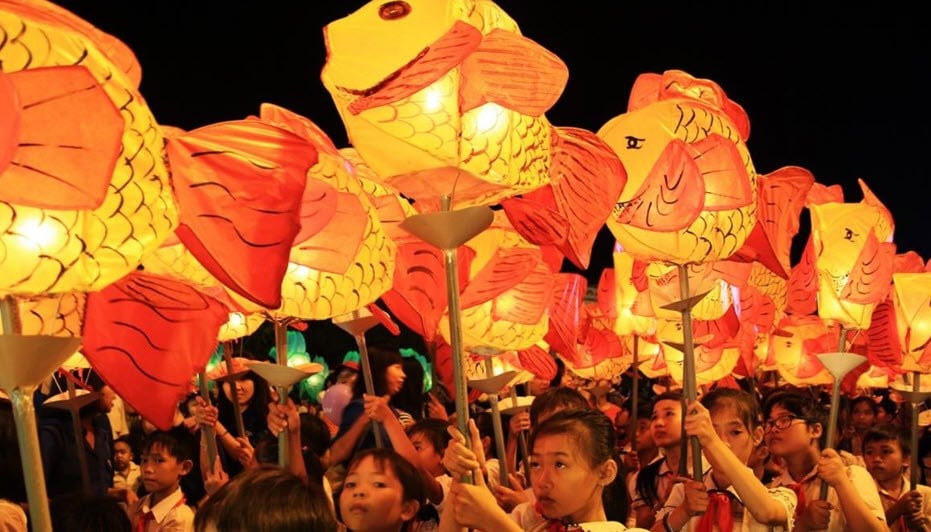
In China, Mid-Autumn Festival is more about the reunion of adults, with rituals of worship, moon viewing, moon cake eating, and family reunion. Children participate but are not the main characters.
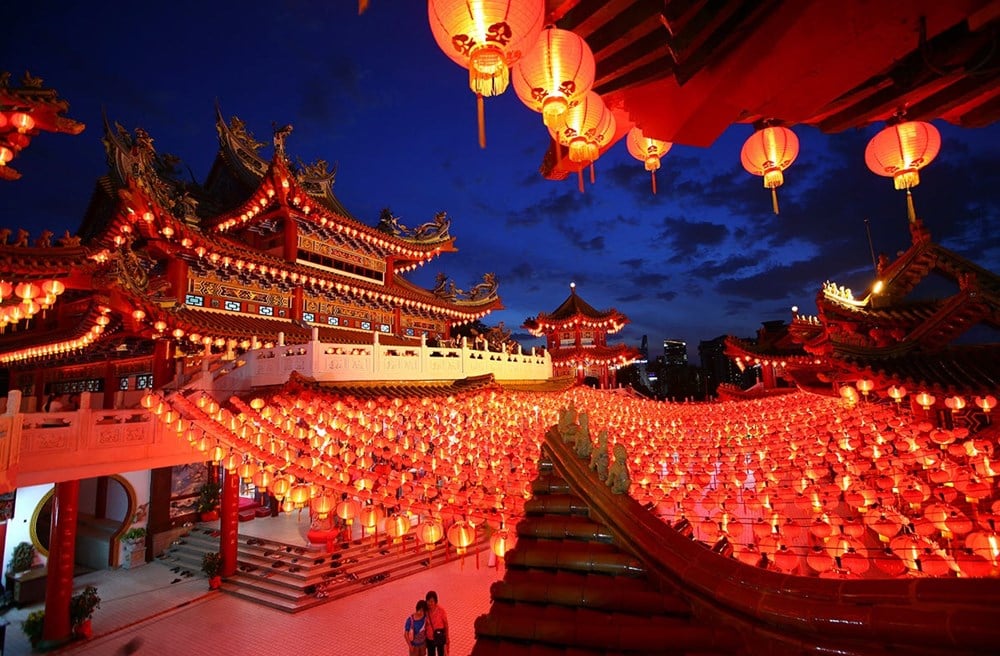
In Korea, the Mid-Autumn Festival is called Chuseok, which is associated with the meaning of giving thanks for the harvest. People return to their hometowns, pay respect to their ancestors, make songpyeon and enjoy autumn produce with their families.
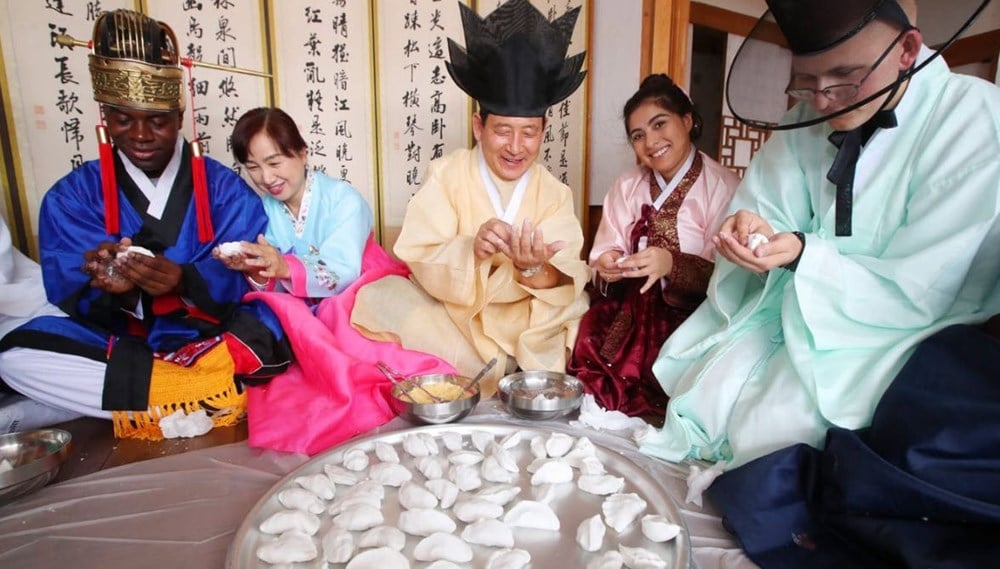
In Japan, the festival called Tsukimi focuses on moon viewing and contemplation. People display dango, mochi and susuki reeds, the atmosphere is gentle and quiet, with few noisy activities for children.
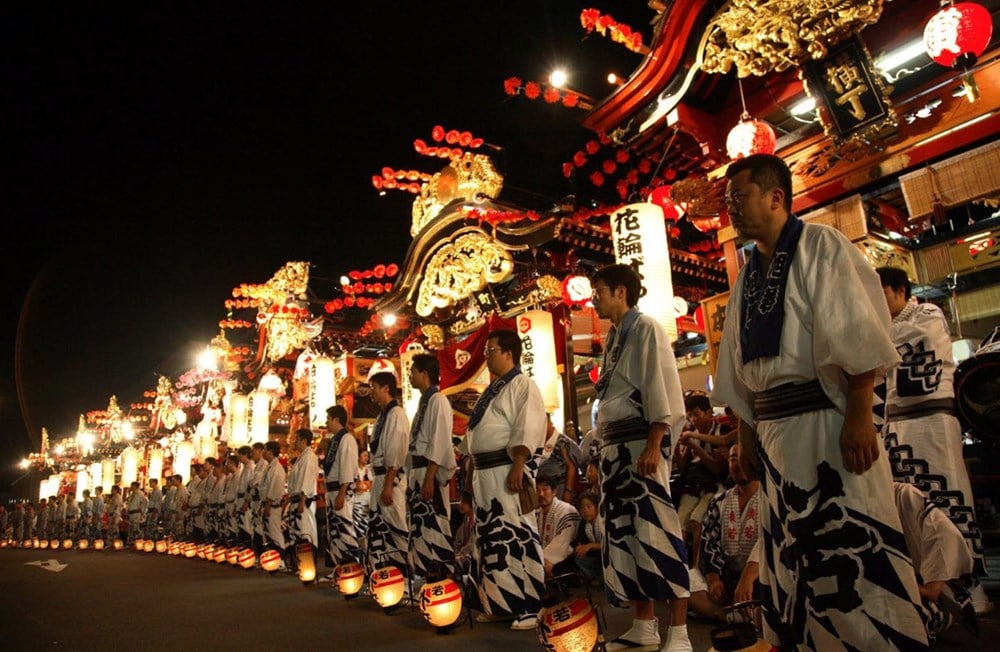
Taiwan has many similarities with China but adds a modern touch with the outdoor BBQ movement, creating a very vibrant atmosphere for family and friends to gather.
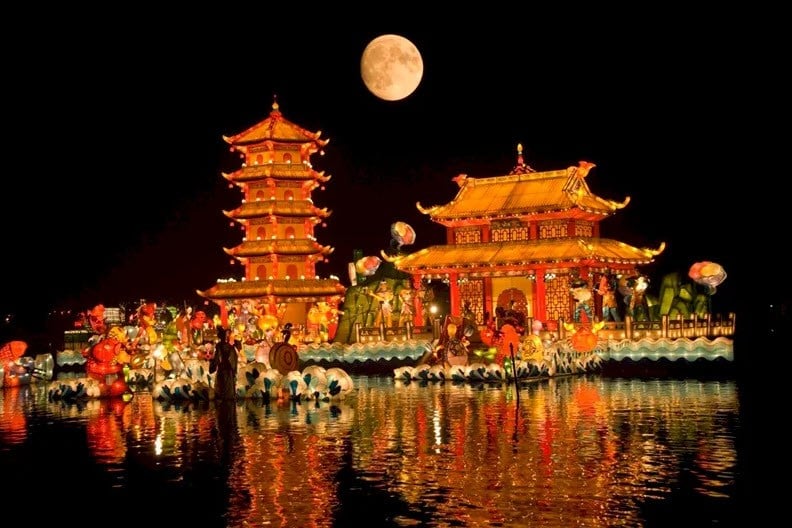
Typical activities and rituals
Vietnam: Lantern procession, lion dance, drums, feast, streets lit up with lanterns.
China: Eating moon cakes, admiring the moon, lantern parades, and in some places dragon and lion dances.
Korea: Ancestral Worship Ceremony (Charye), making songpyeon, Ganggangsullae dance, Talchum mask dance.
Japan: Moon viewing, dango offerings, enjoying cassava and autumn produce, quiet atmosphere.
Taiwan: Eat cakes, enjoy the moon, have BBQs, night markets and outdoor light festivals.
Cuisine and signature dishes
Vietnam is famous for its traditional moon cakes, sticky rice cakes, and autumn fruits on the tray of offerings.
China has a variety of moon cakes with lotus seed, salted egg, green tea and regional products.
Koreans make songpyeon – half-moon shaped sticky rice cakes steamed with pine needles, eaten with chestnuts and fruit.
Japan loves tsukimi dango, mochi cakes, cassava, and tea.
Taiwan combines mooncakes, pomelos and outdoor BBQ.
Cultural significance
In Vietnam, Mid-Autumn Festival celebrates childhood joy and family reunion.
China promotes fulfillment, reunion, and legends like Chang'e and Houyi.
Koreans consider Chuseok an occasion to show gratitude to their ancestors and stay connected to their homeland.
Japan emphasizes tranquility, moon viewing and poeticizing nature.
Taiwan combines family tradition with modernity, seeing it as an opportunity to bond with the community.
Differences in holidays
Most countries celebrate it on the 15th day of the 8th lunar month. In Korea, Chuseok is a major three-day holiday, while in Vietnam, Mid-Autumn Festival is not an official holiday.
Conclude
Each country has a different way of celebrating the Mid-Autumn Festival: Vietnam is bustling with children, China is family-oriented, Korea is associated with harvest and filial piety, Japan is poetic and quiet, Taiwan is bustling with BBQ. These differences show that the same full moon day in August has many cultural colors, reflecting the historical characteristics and spiritual life of each nation.
Source: https://baovanhoa.vn/van-hoa/kham-pha-su-khac-biet-tet-trung-thu-viet-nam-va-chau-a-169955.html






![[Photo] Deep sea sand deposits, ancient wooden ship An Bang faces the risk of being buried again](https://vphoto.vietnam.vn/thumb/1200x675/vietnam/resource/IMAGE/2025/11/13/1763033175715_ndo_br_thuyen-1-jpg.webp)

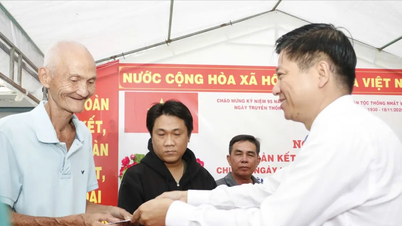

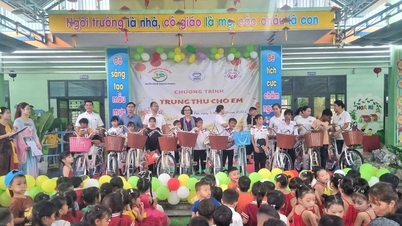





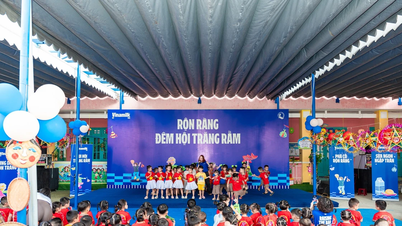



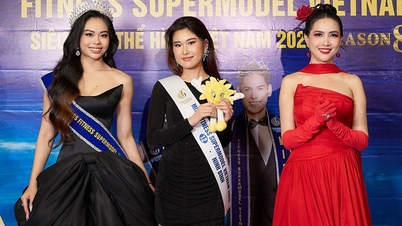

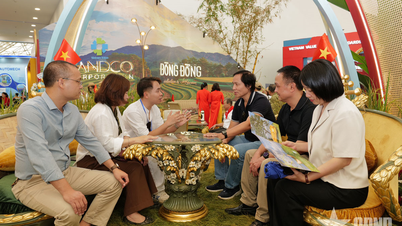

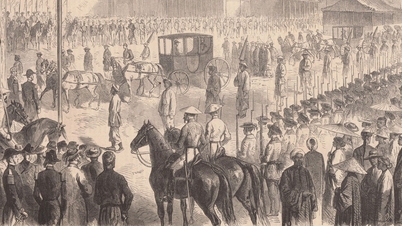
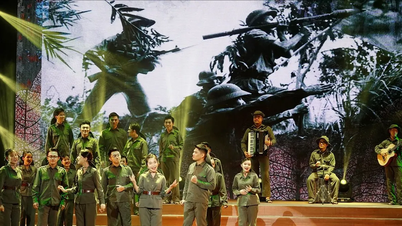
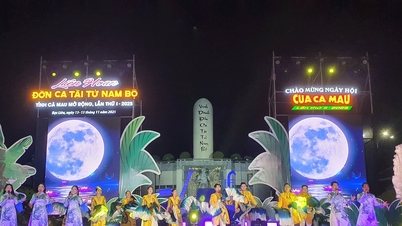






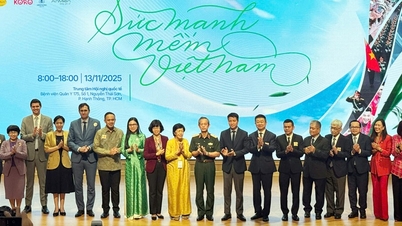
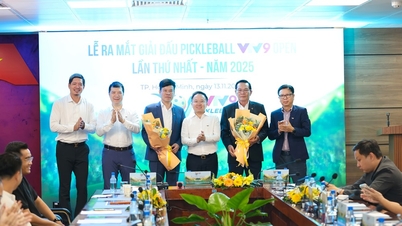
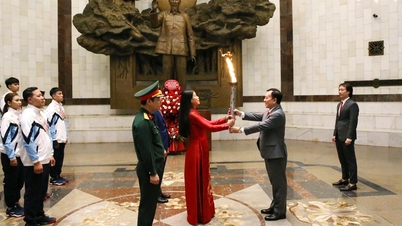
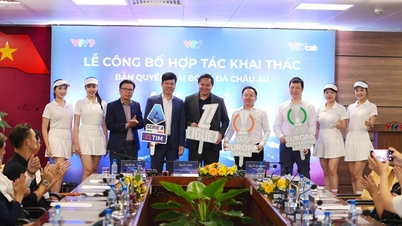



































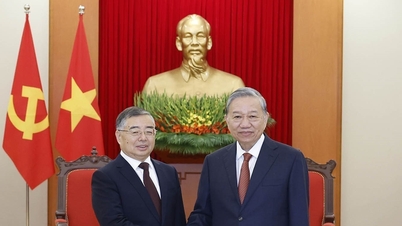
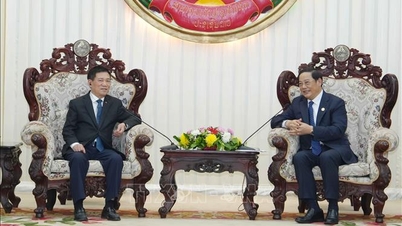
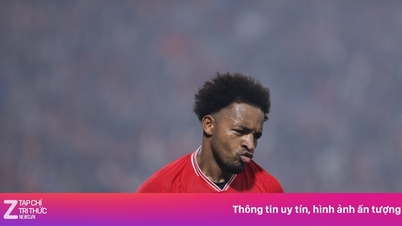



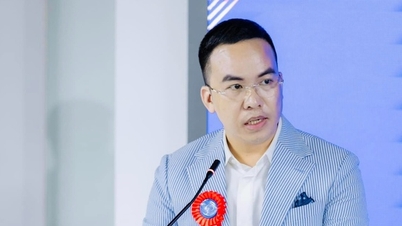
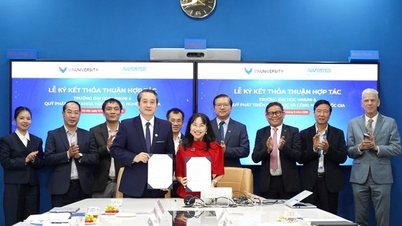

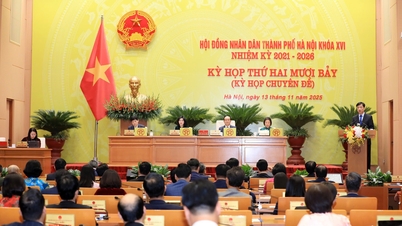

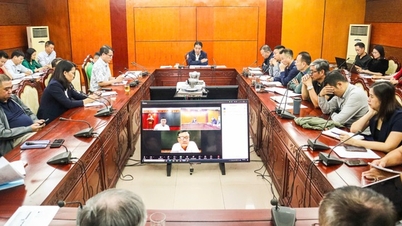
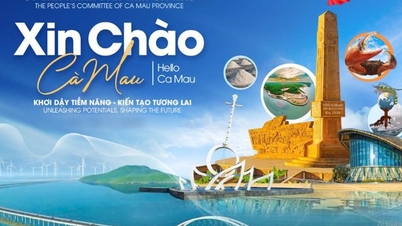
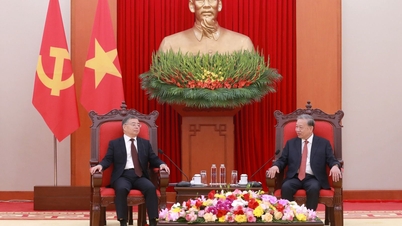



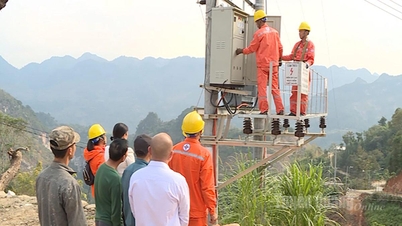

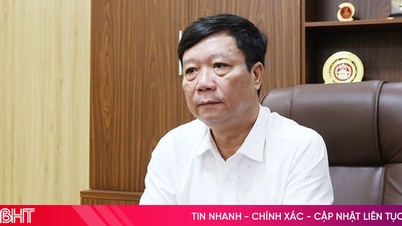

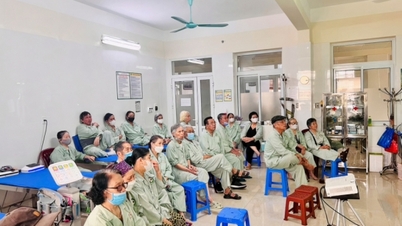






![Dong Nai OCOP transition: [Article 3] Linking tourism with OCOP product consumption](https://vphoto.vietnam.vn/thumb/402x226/vietnam/resource/IMAGE/2025/11/10/1762739199309_1324-2740-7_n-162543_981.jpeg)



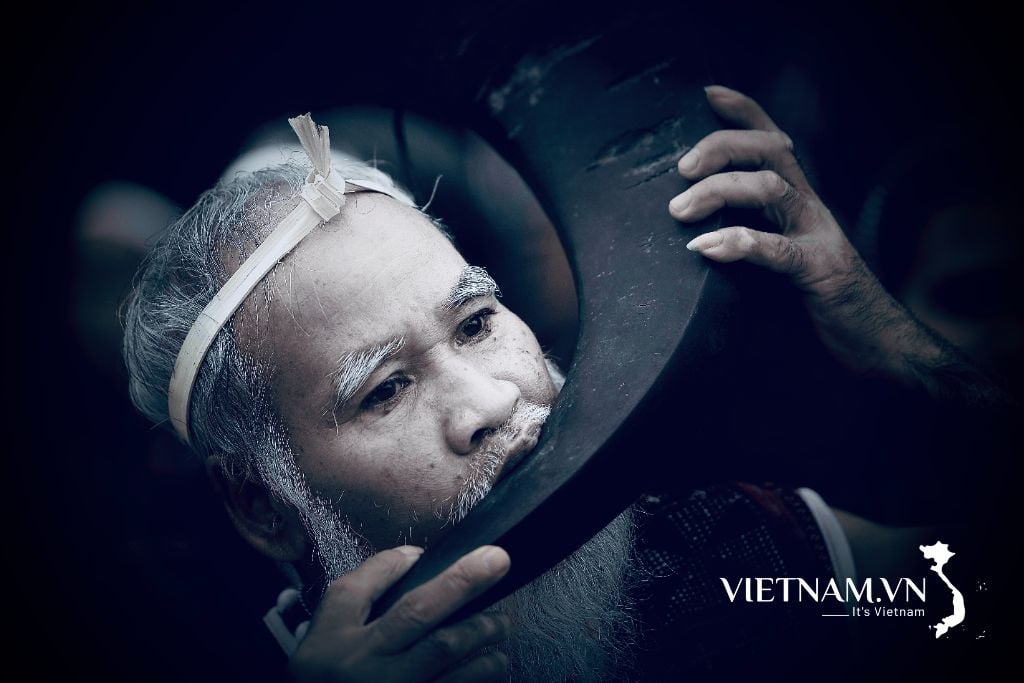
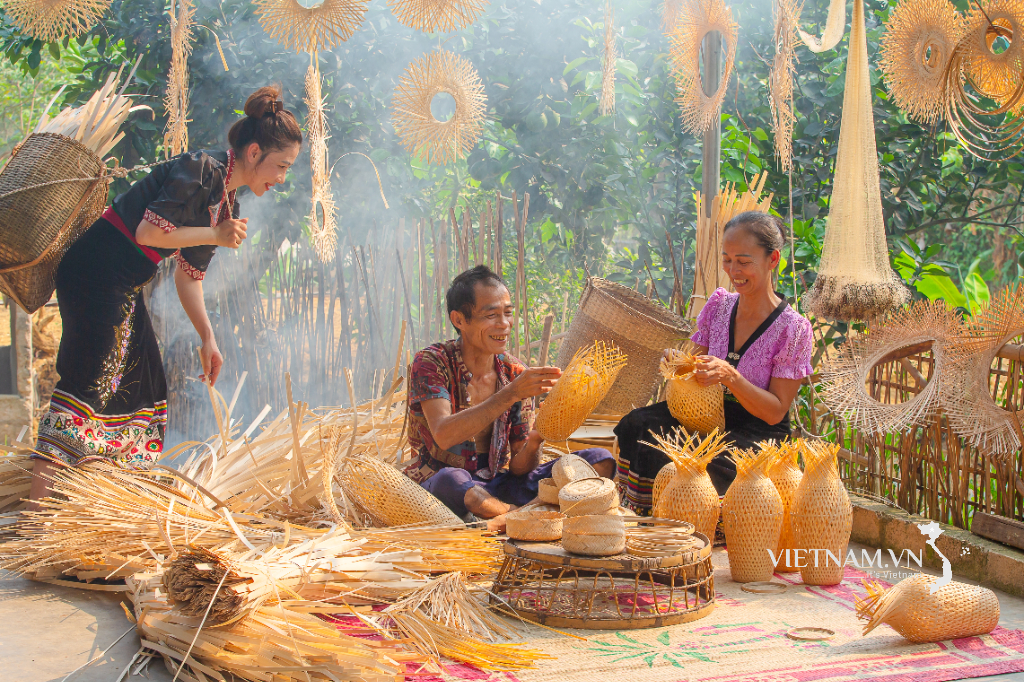

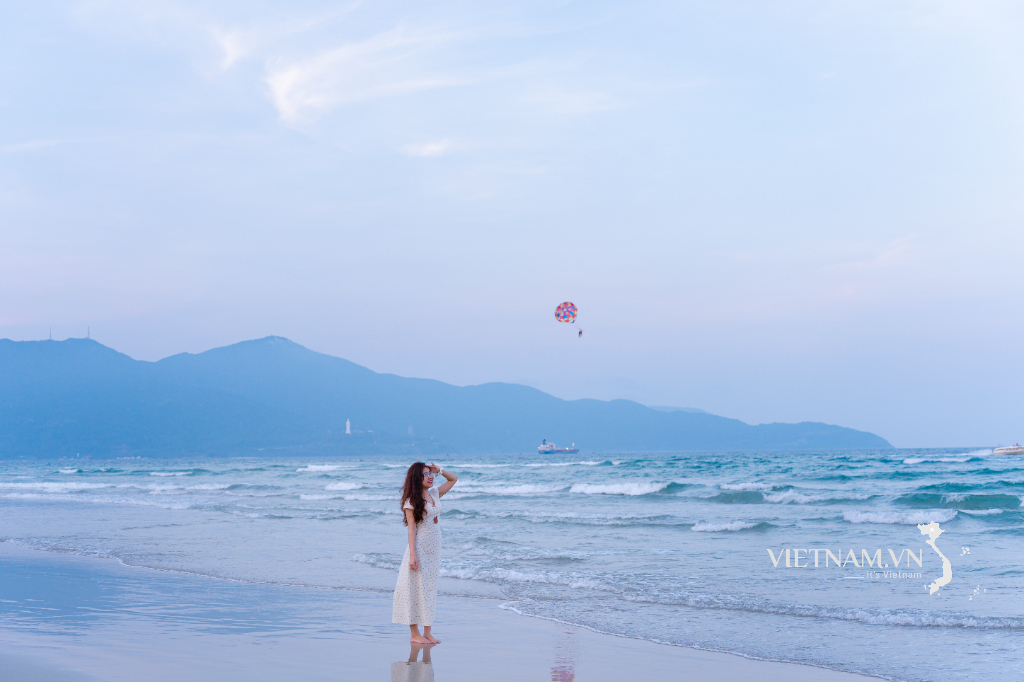
Comment (0)